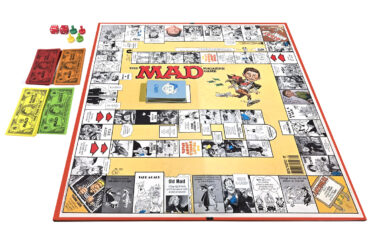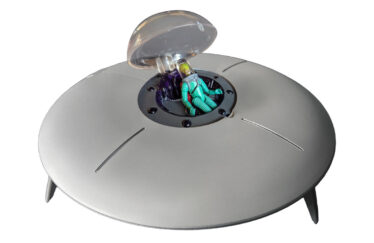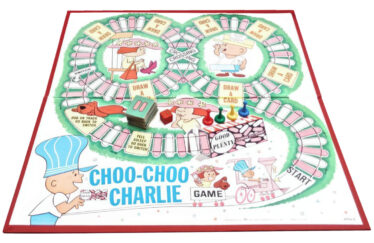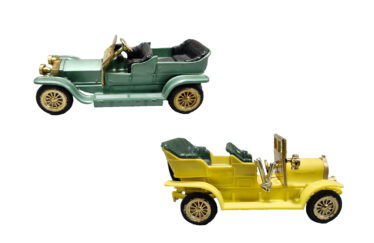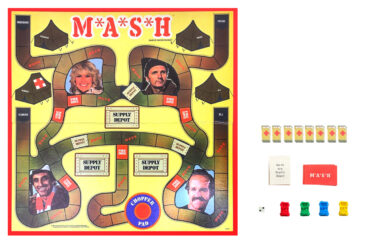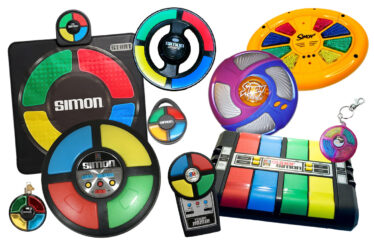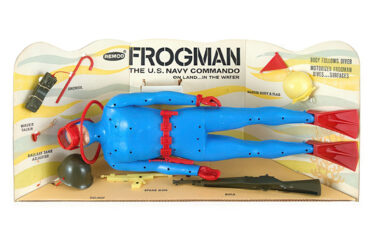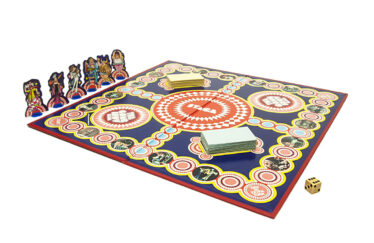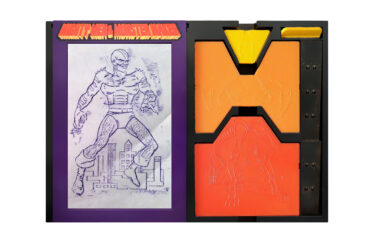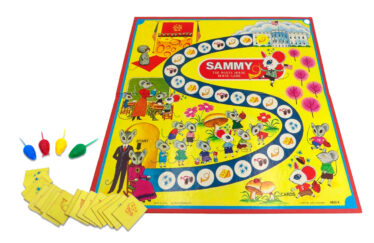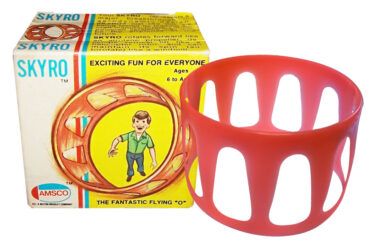
Tabletop Games, Vintage Toys & Games
The Mad Magazine Game from Parker Brothers (1979)
In 1979, Parker Brothers partnered with Mad magazine to release a board game with a play pattern that mirrored the publication’s zany storytelling and irreverent humour.
Mars Attacks! Martian Flying Saucer from Trendmasters (1996)
Released in 1996 by Trendmasters, the Mars Attacks! Martian Flying Saucer brought the delight and terror of Tim Burton’s science fiction comedy film to toy shelves.
Tabletop Games, Vintage Toys & Games
Choo-Choo Charlie from Milton Bradley (1968)
Released in 1968 from Milton Bradley, the Choo-Choo Charlie board game was a brand extension of Good & Plenty candy.
Wild Wheels from Cragstan (1968)
In 1968, Cragstan released Wild Wheels, a line of friction-powered plastic model cars and trucks.
Tabletop Games, Vintage Toys & Games
M*A*S*H from Milton Bradley (1981)
Released in 1981 from Milton Bradley, the M*A*S*H board game aimed to capture the spirit of the beloved television series, tasking players with the challenge of ushering the wounded to safety.
Steel Tec from Remco (1992)
In 1992, Remco released Steel Tec, a model construction system that offered junior engineers builds combining metal parts, such as brackets, strips, and plates, and polystyrene components that were inter-connected using metal screws.
Tabletop Games, Vintage Toys & Games
Simon Says Red, Green, Blue, Blue, Red!
Nicolas Ricketts traces the development of the Simon electronic game and its variations through the years.
Frogman from Remco (1961)
Released by Remco in 1961, Frogman let kids to stage their own underwater adventures.
Tabletop Games, Vintage Toys & Games
The Gong Show Game from American Publishing (1977)
Released in 1977 from American Publishing, The Gong Show Game draws inspiration from its namesake T.V. show and is kind of like a zany Method-acting class.
Mighty Men & Monster Maker from TOMY (1979)
Released in 1979 from TOMY, Mighty Men & Monster Maker allowed children to create their own unique “super-guys” and monsters using interchangeable plates, paper, and coloured pencils.
Tabletop Games, Vintage Toys & Games
Sammy the White House Mouse Game from Parker Brothers (1977)
Published by Parker Brothers in 1977, the Sammy the White House Mouse Game saw players race mouse pawns along a path to the White House.
Skyro from Amsco (1975)
Amidst the rising popularity of frisbee as an outdoor, family-friendly game, Amsco introduced Skyro, its own variant on the flying disc.

